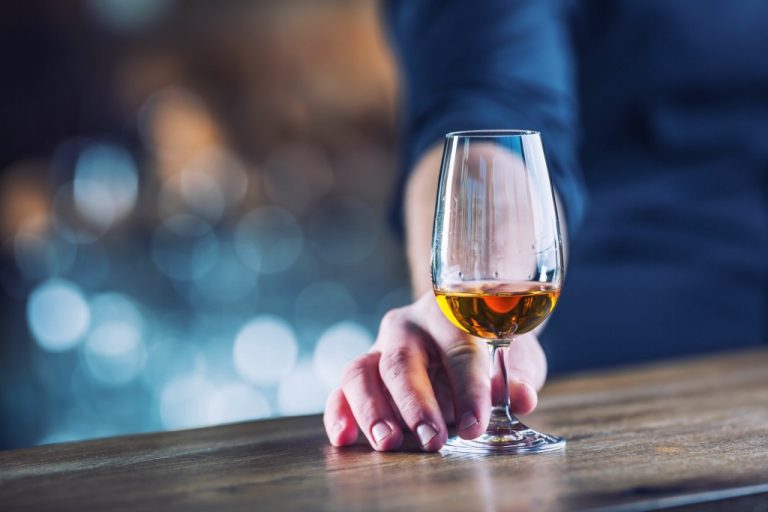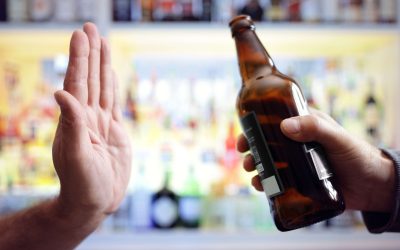Why its a bad idea to mix alcohol with some medications
If you have severe symptoms such as seizures, slow heart rate or breathing, or unconsciousness, call 911 immediately. It is generally safe to consume moderate amounts of alcohol at the same time as taking moderate amounts of acetaminophen. Antidepressant drugs are medications that are specifically developed to treat clinical depression. These drugs belong to several different classes of drugs, and the use of alcohol has a differential effect on the drug depending on the class of drugs. When combined with alcohol, sleeping pills can cause drowsiness and dizziness. Drinking large amounts of alcohol with cholesterol-lowering drugs may increase your risk of liver damage.
Public Health for All

Research suggests that about 20% of adults in the United States mix alcohol with prescriptions. This concerning statistic emphasizes the importance of understanding the potential dangers of such behavior. Alcohol enters the bloodstream through stomach and small intestine, affecting different organs such as liver, brain, and heart. When taken with medication, alcohol can hinder drug absorption, alter metabolic pathways, and cause toxicity or other bad outcomes.
Treatment for Addiction to Sleeping Pills and Alcohol
These side effects can be uncomfortable and even dangerous in some cases. If you experience any of these symptoms after mixing sleeping pills and alcohol, it’s important to seek medical attention right away. When you mix sleeping pills and alcohol, the sedative effects of both substances are intensified. This can lead to enhanced drowsiness, which can cause you to feel excessively tired and lethargic. You may find it difficult to stay awake or concentrate on tasks, which can be dangerous if you need to operate heavy machinery or perform other activities that require focus. Mixing drugs and alcohol is a dangerous and potentially life-threatening practice.
Other Medication Interactions
- Your road to recovery and restored health starts with one step—asking for help.
- According to the National Institute on Alcohol Abuse and Alcoholism (NIAAA), over 86 percent of adults in the United States drink alcohol at least once in their lifetime.
- In 2019, nearly half of drug overdose deaths involved more than one drug.
- The interactions can also exist in reverse, where a medication slows down the body’s ability to metabolize alcohol.
- Don’t wait— reach out today to take the first step toward taking control of your life.
In support of improving patient care, CME/CE activities offered have been planned and implemented by the Postgraduate Institute for Medicine and NIAAA. Researchers have not determined how many drugs are safe to take with alcohol, as it can vary depending on height, weight, age, tolerance, and more. A similar warning appears in documentation from the manufacturer of the sedative-hypnotic drug Sonata. Here, manufacturers report that the drug should not be provided to those with a history of drug dependence and that it should be stored safely to prevent abuse. But if the thought of avoiding alcohol while you take your medications worries you, the dangers you might face can vary depending on the type of medication you’re using.
- If you have severe symptoms such as seizures, slow heart rate or breathing, or unconsciousness, call 911 immediately.
- Natalie Watkins is a medical writer and educator specializing in mental health.
- Alcohol may also interfere with how the body absorbs and processes medications, which can either decrease their effectiveness or increase the concentration in the bloodstream, leading to toxicity.
- Combining alcohol with other substances can be extremely dangerous and even fatal.
- According to the National Institute on Alcohol Abuse and Alcoholism, more than 10% of people in the USA mix alcohol with medicines that can cause harm.
They decelerate the hyperactivity of the brain, leading to relaxation and alleviating anxiety. When consumed along with alcohol, which is a depressant as well, their impact can be very strong and have devastating consequences. Tell your doctor about any other medications or supplements you take, to avoid dangerous interactions. The first kind occurs when alcohol alters the way the body absorbs, metabolizes, or releases the medication. This can cause changes in the drug levels and increase the odds of side effects. According to an American Addiction Centers study, 9 percent of those who combined alcohol with medication needed emergency medical care.

You will want to avoid alcohol for three days before you start and after you stop Flagyl. Antipsychotics may be prescribed for people with conditions such as bipolar disorder or schizophrenia. Relapse prevention strategies focus on identifying triggers, developing healthy coping mechanisms, and creating a relapse prevention plan. It’s important to remember that relapse does not signify failure but rather an opportunity for growth and learning.
Prescription stimulant medications such as Adderall, Ritalin, Vyvanse, and Concerta are also commonly prescribed for attention deficit disorders. Mixing a stimulant in a drink with alcohol creates a false sense of risk because their effects counteract each other. Stimulants blunt the alcohol’s impact Halfway house on getting drunk, and individuals will unknowingly drink significantly larger amounts. Being aware of the risks of combining these drugs is essential; it’s the most important step to obtain immediate and effective assistance before any lasting damage occurs. Knowing the possible risks empowers individuals to make healthier decisions about their well-being and health, compelling them to get the help they need. Consuming them together can have serious and even life-threatening consequences.
Prescription Medications and Alcohol
Signs include erratic behavior, increased tolerance, frequent intoxication, and neglect of responsibilities. Our programs focus on building skills to recognize triggers, manage stress, and develop a personalized recovery plan for long-term sobriety. Whether you or a loved one is struggling with addiction, our expert team is here to guide you every step of the way. Don’t wait— reach out today to take the first step toward taking control of your life. Older people do not break down medicines as quickly as younger people, and are often on more than one medication.
Depending on the medication’s half-life and metabolism rate, the time it would be safe to consume alcohol could vary. Discuss this timing with your healthcare provider to ensure you’re not inadvertently compromising your treatment or putting yourself at risk. Along with the temporary side effects of alcohol and drug abuse, there are complications that can be long-lasting.
Polysubstance Use Facts
Depending on the amount of alcohol and type of drug consumed, you can experience an array of harmful side effects. Since alcohol is a depressant, mixing it with another drug can be detrimental for your health. People who engage in polydrug use may be seeking certain effects or trying to mitigate negative side effects from one drug by taking another. Additionally, it is important to read medication labels and discuss any concerns with a healthcare provider. If you’re struggling with sleep issues and need help finding a safe and effective treatment plan, talk to your doctor.
For Loved Ones: How to Support a Loved One’s Mental Health
Because of the variety of different possible combinations, the symptoms of a drug interaction with alcohol vary considerably. Nausea, stomach upset, dizziness, or sleepiness are all relatively common interaction effects, but you should always contact your doctor if these are more than mild in severity. With such widespread use, inevitably, some people looking to drink alcohol will also be taking some form of prescription or over-the-counter drugs. Some of these medicines may coexist well with alcohol, but others can interact in dangerous ways.
As with all benzodiazepines, alcohol is not recommended with alprazolam.21 Alcohol and benzodiazepines act as CNS depressants. Combining the two can dangerously suppress breathing and lead to potential overdose. Trazodone is also an antidepressant, although it works differently than an SSRI. It can be used to treat depression or insomnia because one of its main side effects is sedation. 16 Taking them together can increase significant side effects, such as sleepiness or dizziness. Sertraline does not usually interact chemically with alcohol.15 In fact, mixing alcohol and pills the oral solution version of sertraline contains alcohol.